Earlier this year on an ordinary Monday afternoon, a bespectacled man walked into the Gold & Silver Pawn Shop on Las Vegas Blvd. Tucked under his arm was an uninteresting box that only he knew contained something rather interesting – a pair of gold watches dating back more than 40 years.
These were not your run-of-the-mill wristwear, but rather evidence of a unique and often overlooked time of poker history, a year when the World Series of Poker (WSOP) gold bracelet, now the game’s highest accolade, was replaced in favor of watches.
The man holding the box was David Sklansky, who in 1978 forever changed poker by advocating a mathematical approach to the game in his groundbreaking book The Theory of Poker. Nicknamed “The Mathematician,” he proved his prowess just four years later when he won two WSOP tournaments in five days.
Bookmark this page! All you need to know about the 2024 WSOP is here.
First, he won the 1982 WSOP Event #7: $800 Mixed Doubles Limit Seven Card Stud, a tournament that paired one man with one woman, alongside Dani Kelly, and followed that up by taking down Event #12: $1,000 Limit 5-Card Draw High. A year later, the Binions reverted back to the beloved bracelets players know today, and Sklansky captured his third piece of WSOP hardware by winning Event #11: $1,000 Limit Omaha.
It was a remarkable accomplishment, and for more than four decades he’s kept safe the evidence of his victories, both of which still worked. So, why was Sklansky carrying his 1982 WSOP gold watches, two of only 15 ever awarded, into a pawn shop? Well, he was looking to sell them of course, but not to just any of the dozens of pawn shops spread across Las Vegas. Oh no, he was walking into arguably the most famous pawn shop in the world, the home to the wildly popular television show Pawn Stars, and he was there to do it with cameras rolling.
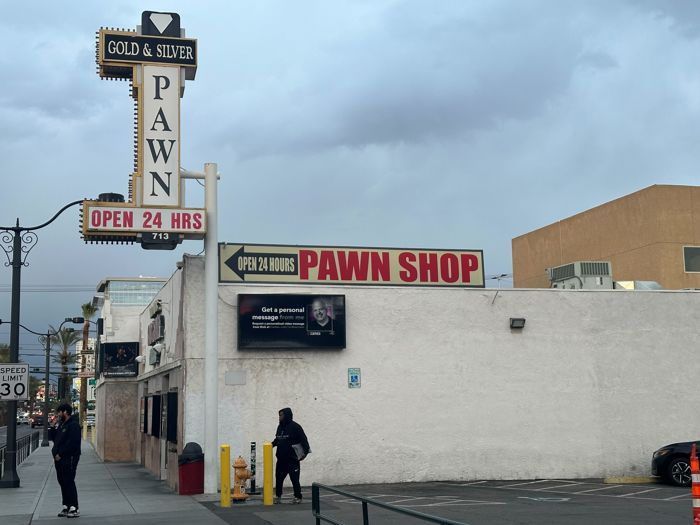
Impressing Stu Ungar & Doyle Brunson
To say Sklansky, the son of a Columbia math professor, is a legend of poker would be an understatement. He has $1,409,667 in lifetime tournament earnings according to the Hendon Mob, which includes a career-high $419,040 – his only six-figure score – for finishing third out of 545 entries in the 2006 World Poker Tour (WPT) $10,000 Championship.
It was Sklansky’s mathematical mind that set him apart from poker players back in the 1970s. While most players relied on either feeling or luck, Sklanskly took a more calculated approach to the game.
“In poker, if you’re better than anyone else, you make immediate money,” he is quoted as saying in Al Alvarez’s 1983 work The Biggest Game in Town. “If there’s something I know about the game that the other person doesn’t, and if he’s not willing to learn or can’t understand, then I take his money.”
Al Alvarez, Author of ‘The Biggest Game in Town,’ Passes Away at Age 90
Sklansky told PokerNews of the time, “Even though these guys weren’t mathematical, they were often making proposition bets. They were making bets with each other about which hand was better, and then when they met me, they found out that they didn’t have to deal it out to find out which was better. I could tell them with pencil and paper, which is better. So, I was accepted fairly quickly because they knew it was a big thing.”
One player who took notice of Sklansky’s abilities was the legendary Stu Ungar, who won the WSOP Main Event three times. In his early days in Las Vegas, Sklansky said it was common for him to be walking into a poker room to buy into a tournament and for Ungar to come up to him, pull out a few hundred dollars, and hand it over to buy some action. If the self-assured Ungar thought someone else was a good bet, well compliments don’t get much higher than that.
Sklansky’s reputation and abilities even inspired Doyle Brunson to recruit him to pen the Seven-card Stud Hi-Lo Split chapter in his 1979 book How I Made Over $1,000,000 Playing Poker, which later rereleased as Super/System.
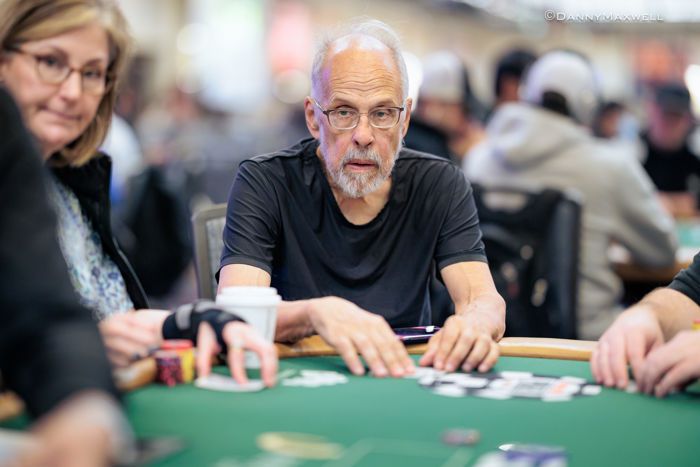
While he’s had success as a player, Sklansky is better known for his prolific writing career having either authored or co-authored 18 poker/gambling books. Some of his better-known works include Hold’em Poker, DUCY? Exploits, Advice, and Ideas of the Renowned Strategist, Limit Hold’em for Advanced Players, and Sklansky Talks Blackjack.
Most recently in December of last year, Sklansky joined forces with Mason Malmuth to release Small Stakes No-Limit Hold’em: Help Them Give You Their Money: Exploiting Weaknesses in Small Stakes No-Limit Hold’em Games, which is available now on Amazon.
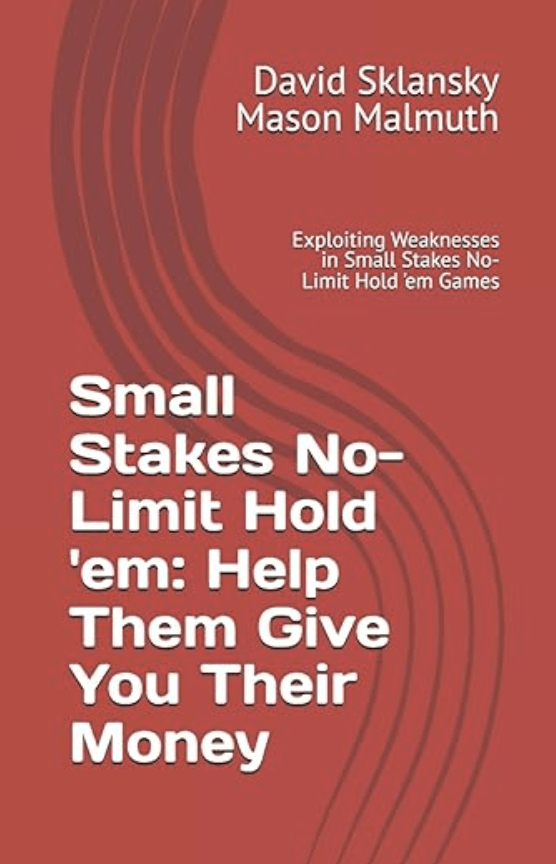
“At one point I accomplished something that, as far as I know, only JK Rowling has also accomplished, which is, I had three books on Amazon’s Top 100 at the same time,” Sklansky said proudly. “They rate their books from like 1 to 5 million. I had three in the top, not high, something like 40, 60, and 80, but they were three at the same time during the Poker Boom.”
Some would argue that Sklansky’s career is worthy of the Poker Hall of Fame, though joining the ranks of the 62 current members isn’t something he aspires to.
“I know bad things about many people in the world. I’ve heard stories about a lot of the people that are in there too,” said Sklansky. “I was offered the Hall of Fame twice. People came and said, ‘If you put your name up this year, you’re going to get it.’ It has people in there that are bad people and it also has people there who are absolutely not.”
Two people Sklansky singled out as Poker Hall of Famers he respects are 1986 WSOP Main Event champ Berry Johnston and the longtime tournament director Eric Drache.
“I like to think that in more recent years it’s become a little more legitimate than back in the day when they were just putting up anyone, but there’s still a lot of issues. There are people who deserve to be in it that aren’t in it. Right now, some of the best players in the world are not even known.”
WSOP Gold Watches?
The 1982 WSOP at Binion’s Horseshoe hosted 14 events from May 9-27. Because of the aforementioned Mixed Doubles tournament, 15 gold watches were awarded.
“I haven’t seen her since then,” Sklansky said when asked about his Mixed Doubles partner, Dani Kelly. “I hope she’s still alive and doing well, but I haven’t seen her. I knew her a little bit, just friends, and we just decided to be partners in the mix. The game was seven-card stud and every half hour you went back and forth. It wasn’t like they have it now where you have two people and they can be tagged whenever and decide how often each of them plays.”
The 1982 WSOP marked the first time Binions offered gold watches in lieu of bracelets.
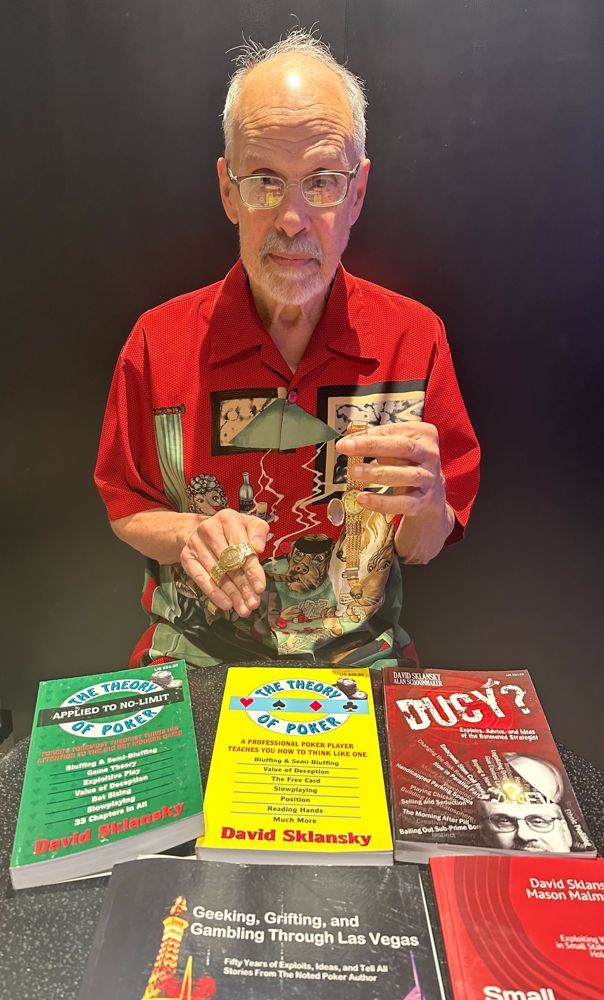
“They thought they were making an improvement. It cost them twice as much money,” Sklansky explained. “They were surprised to hear from players that they didn’t like them and wanted to go back to the bracelets. That’s what they had been doing. Now, we understood that bracelets were cheaper, but that’s what we wanted. So, they went back to awarding bracelets in 1983. That’s what happened. They were planning to go indefinitely with the watches, but they didn’t. Sometimes those anomalies are what makes something worth more. This was an anomaly.”
Poker Hall of Famer Billy Baxter, who last year was also inducted into the Sports Betting Hall of Fame, won the first two events in 1982 for his third and fourth WSOP victories, while Sklansky joined him as a two-time winner two weeks later. Poker Hall of Famers David “Chip” Reese and Jack “Treetop” Straus also won WSOP tournaments that year.
1982 WSOP Gold Watch Winners
| Tournament | Entries | Prize Pool | Winner | Prize |
|---|---|---|---|---|
| Event #1: $2,500 No-Limit A-5 Draw Lowball | 39 | $97,500 | Billy Baxter | $48,750 |
| Event #2: $10,000 No-Limit 2-7 Draw Lowball | 19 | $190,000 | Billy Baxter | $95,000 |
| Event #3: $1,000 Limit Seven Card Stud Hi-Lo | 88 | $88,000 | Tom Cress | $44,000 |
| Event #4: $1,000 No-Limit Hold’em | 192 | $192,000 | Jim Doman | $96,000 |
| Event #5: $500 Ladies Limit Seven Card Stud | 64 | $32,000 | June Field | $16,000 |
| Event #6: $1,000 Limit Razz | 80 | $80,000 | Nick Helm | $40,000 |
| Event #7: $800 Mixed Doubles Limit Seven Card Stud | 44 | $35,200 | David Sklansky & Dani Kelly | $8,800 |
| Event #8: $1,500 No-Limit Hold’em Non-Pro | 164 | $246,000 | Ralph Morton | $123,000 |
| Event #9: $1,000 Limit Hold’em | 202 | $202,000 | John Paquette | $101,000 |
| Event #10: $5,000 Limit Seven Card Stud | 37 | $185,000 | David “Chip” Reese | $92,500 |
| Event #11: $1,000 Limit A-5 Draw Lowball | 77 | $77,000 | Vera Richmond | $38,500 |
| Event #12: $1,000 Limit Draw High | 31 | $31,000 | David Sklansky | $15,500 |
| Event #13: $1,000 Limit Seven Card Stud | 112 | $112,000 | Don Williams | $56,000 |
| Event #14: $10,000 Main Event | 104 | $1,040,000 | Jack Straus | $520,000 |
When it comes to where those 1982 WSOP watches are, only a third of them are currently accounted for assuming Baxter still has his two tucked away safely somewhere in Las Vegas,
As for David “Chip” Reese’s gold watch, his one-time girlfriend Terry King, a member of the Women in Poker Hall of Fame and de facto poker historian, knows at least half the story.
“Chip didn’t really like jewelry. I took the cover off his watch as he never wore it. I figured maybe [it being] plain [that] he would. Nope,” King explained. “I wound up with the cover in my jewelry box. He mentioned once in an interview, ‘I think there was a watch one time.’ Which means he probably lost that, too.”
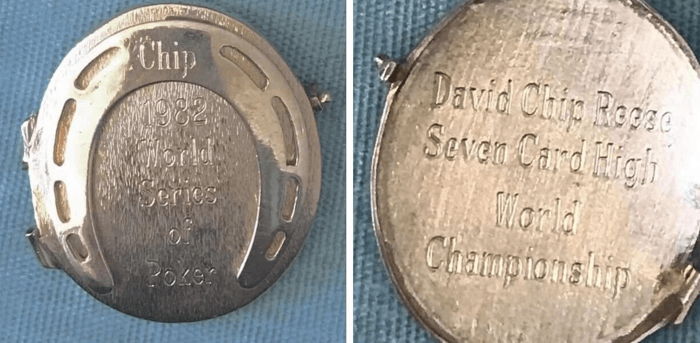
The rest of the watches could very well be lost to poker history as, according to King, most if not all of the other winners have since passed away.
Tom Cress had a pair of WSOP cashes in 1982 and one more in 1987 before disappearing from the poker world, while Jim Doman won a bracelet the following year but hasn’t cashed the WSOP since 1992. June Field won a watch by taking down that year’s Ladies Event, which is her only WSOP cash.
Nick Helm won a watch in Event #6: $1,000 Limit Razz and then had no WSOP cashes until nearly three decades later, and that’s if you believe it was the same man and simply not someone with the same name (it happens a lot when it comes to poker results). Ralph Morton claimed two bracelets in the 1980s but faded into history after finishing 18th in the 1989 WSOP Main Event. John Paquette has only one career WSOP cash, which was his win, and the same can be said of Vera Richmond.
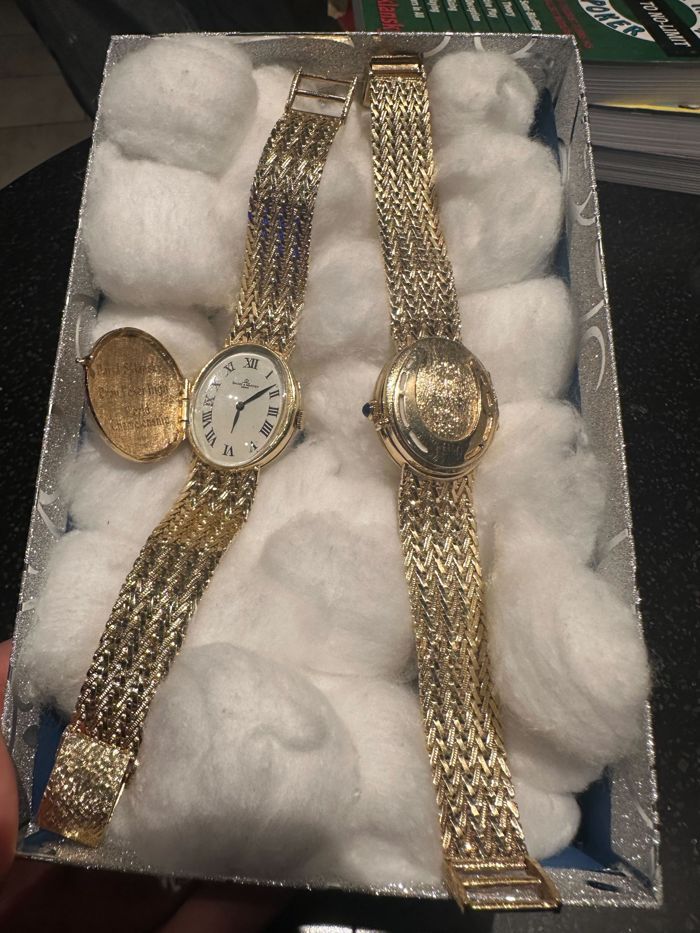
One of the most successful players on the list of 1982 WSOP winners was Don Williams, who won Event #13: $1,000 Limit Seven Card Stud for $56,000. It would be the first of his three WSOP wins with the second coming in the 1985 WSOP Event #12: $1,000 Limit Seven Card Stud for $85,500 and the third in the 1988 WSOP Event #11: $1,000 Limit Razz for $76,800. He also had five runner-up finishers in WSOP events. Williams had a successful WSOP career – 24 cashes for $820,076 – but his last cash came back in 1995.
As for that year’s WSOP Main Event Champion, Jack “Treetop” Straus passed away in 1988 after suffering a heart attack at the Bicycle Casino. Whatever became of the Poker Hall of Famer’s gold watch may never be known.
Making His Way to Pawn Stars
When Sklansky decided to sell his two WSOP gold watches, he put out the word with friends in the poker community, and it was former PokerNews Community Manager Jesse Fullen who suggested he take them to Pawn Stars.
“I hadn’t made any major effort to do it. I didn’t put it on eBay. I didn’t go to a lot of trouble,” said Sklansky. “So then when I mentioned it to Jesse, he said, ‘Well, I’m trying to get onto Pawn Stars, they’re in Vegas, so maybe you should too.’ I wouldn’t have gone to the trouble of doing it if it wasn’t for the fact that they were looking for people in Las Vegas. So, when they were soliciting people, I thought, okay, I’ll put it on.”

Fullen connected Sklansky with a producer from the show, who in turn asked for more information. Upon learning the background of the watches, she was immediately interested.
“I’m guessing that they were more interested in whether it makes for a good show rather than worrying about whether they can buy something and make a few thousand profit,” Sklansky speculated. “The negotiation is a real negotiation, but I think their main concern is that it makes for a good show. They want something that has some historical significance and value.”
He continued: “Being on national TV was something I wasn’t going to turn down regardless of the outcome of the sale. I mean, unless they offered something insulting. They know that this is a big part of poker history.”
How Much is a Bracelet Worth?
With only five, or maybe four and a half, gold watches from the 1982 WSOP accounted for, one would assume a pair would command a decent price.
“I’m assuming it would be near the upper end of what bracelets sometimes fetch,” Sklansky said when asked how much he thinks his watches are worth. “The run-of-the-mill bracelet that you might win next year in a $1,000 buy-in tournament doesn’t go for that much, but older ones have sold for higher prices.”
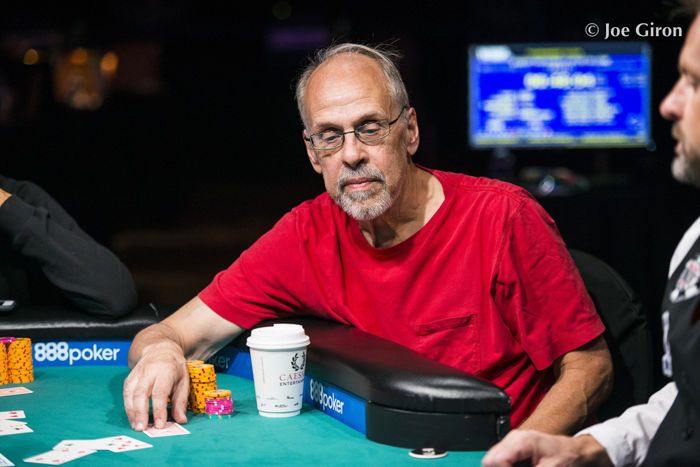
Sklansky pointed out that bracelets these days are worth between $1,000-$3,000 simply in gold value, but context such as which event it came from and who won it can increase its value exponentially. Given that so few of the watches were ever made, let alone exist today, Sklansky believes they’re worth quite a bit more, especially when taking into consideration bracelets that have sold over the past decade.
“I took it to Pawn Stars in Vegas and their jeweler looked at it. He said he has seen numerous WSOP bracelets. He said everything looked correct and it looked genuine in his opinion.”
For example, the 56.1-gram, 10-karat gold bracelet won by Venezuela’s Joseph Di Rosa Rojas after he topped a field of 1,759 entries in the 2017 WSOP Event #23: $2,620 Marathon for $690,469 was listed on eBay in 2018 by a jewelry store.
“It was sold to a jewelry store near the strip in Las Vegas,” a representative of the store told PokerNews via eBay message. “I buy a lot of electronics from his brother. He came to me said his brother took this in. I thought it was pretty cool and I had a couple guns he wanted so we traded. He couldn’t discuss with me who sold it to him as it would be a violation of confidentiality.”
The message continued: “I couldn’t tell you if it was [Joseph Di Rosa Rojas] in fact who sold to them or who it was. I took it to Pawn Stars in Vegas and their jeweler looked at it. He said he has seen numerous WSOP bracelets. He said everything looked correct and it looked genuine in his opinion. He said they pop up semi-often in Vegas with the number of events at the WSOP now and it being an annual event. That was good enough for me. I figured if anybody knew it would be those guys.”
The bracelet was listed as “Buy It Now” for $3,000, though whether or not it sold is unknown.
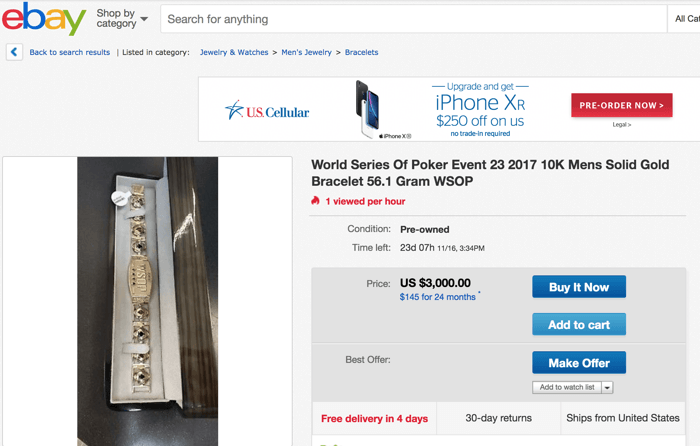
That bracelet was far from the first to appear on the secondary market. The year before, Poker Hall of Famer Tom McEvoy listed his 1983 WSOP Main Event bracelet, along with other memorabilia, on eBay for $13,500. That same year, four-time bracelet winner Max Pescatori listed his 2015 WSOP $10K Seven-Card Stud Hi-Low Championship bracelet on eBay to help raise money for earthquake relief in his home country of Italy.
Back in 2010, 1991 WSOP Main Event champ Brad Daugherty listed his gold bracelet online, and while someone bid $30,100, it didn’t meet an undisclosed reserved price. Another former Main Event champ, Peter Eastgate, famously auctioned off his hardware for $147,500, all of which went to the UNICEF charity. Similarly, 2006 WSOP champ Jamie Gold auctioned off his Main Event bracelet for $65,725 back in 2013 due to “a legal issue,” while 2007 Main Event champ Jerry Yang saw his bracelet go in a tax auction.
Buyer of Peter Eastgate’s Bracelet Wants to Return it to WSOP, Raise Money for Charity
Another bracelet that was up for sale in the past was one from 2005 won by TJ Cloutier, which sold for $4,006 after being listed by a Texas pawn shop. The bracelet was won by the now-defunct online poker site Cake Poker, which returned it to Cloutier.
Likewise, a third-party seller from Ireland sold the late Paul “Eskimo” Clark’s 1999 WSOP Razz bracelet for $4,050.
However, just because a bracelet is listed doesn’t mean it’s going to sell. Years ago, Hassan Kamoei’s 1999 WSOP $2,500 Pot-Limit Omaha bracelet was listed on eBay for 10 days with a $3,800 starting prize. It received no bids.
Most recently in mid-April of this year, a 2011 WSOP bracelet was listed for $14,888 and sold, albeit after a “Best Offer” was accepted, so exactly how much it sold for is unknown.
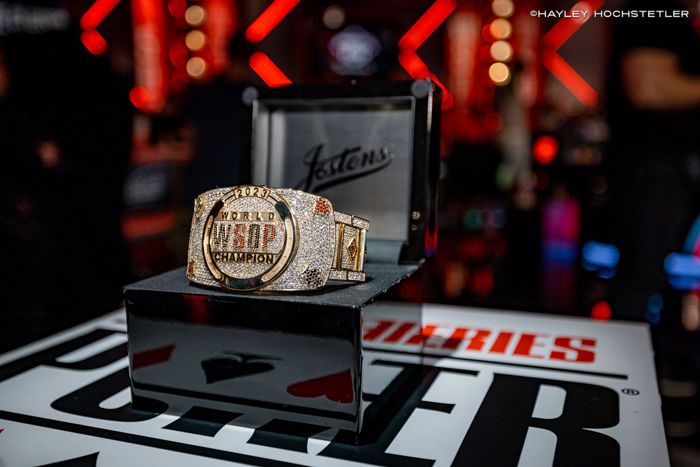
Deal or No Deal?
The poker world hasn’t seen much of Sklansky in recent years. He spent time back East for a bit, and then he experienced some health issues that knocked him out of commission. Thankfully, Sklansky has said that he is now quite a bit better.
“I was in very good shape and I think I can get back into very good shape again,” he said. “So, a lot of different things are going on in my life. All kinds of ups and downs, but I’m now writing again and plan to play quite a few more events at the WSOP this year.”
So, did Sklansky strike a deal on Pawn Stars?
His asking price was one watch for $27,000, or both for $50,000.
“They’re so rare and so unique, I would think that they would be on the upper end of bracelets that have sold for anywhere up to $50,000. The big ones, the Main Event, at least two of them have sold for over $100,000. There weren’t as many bracelets in the 1980s and 90s as there are today, so that’s one reason why they should be worth quite a bit more than a regular bracelet.”
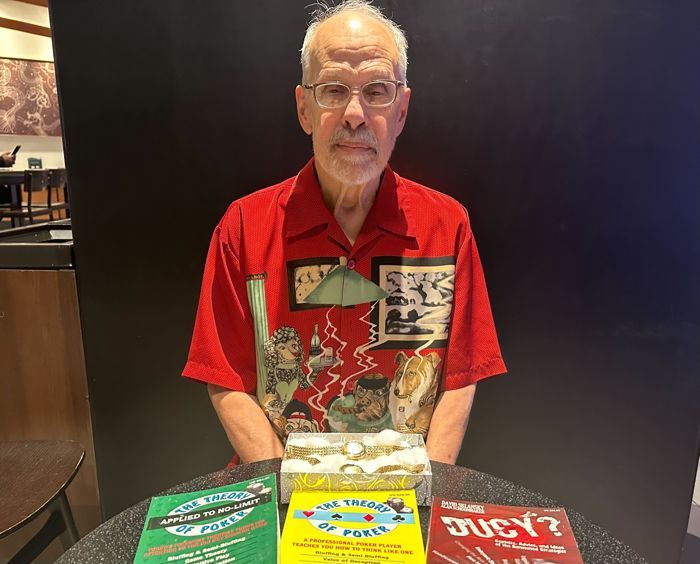
He added: “Another reason would be because it’s a well-known name on there. And the third reason and biggest reason is because it’s not a bracelet. It was the one year they awarded watches, so there will never be another one. There’s not going to be another watch like this.”
According to Sklansky, the star of the show Rick Harrison liked the watches and was knowledgeable about the WSOP, but indicated that getting a premium price would probably require selling them to someone in the poker world. As such, Harrison didn’t make a counteroffer and passed on the gold watches.
“That was probably the best result short of accepting my price,” admitted Sklansky, who says anyone interested in potentially acquiring his watches should reach out.
In the meantime, fans will have to wait and see if Sklansky’s segment makes it to air in a future episode of Pawn Stars, while the two WSOP gold watches tick away back in their small, uninteresting box.
Oh, and if you’re wondering whatever happened to Sklansky’s gold bracelet from the 1983 WSOP – his ex-wife has that one.


PR & Media Manager
PR & Media Manager for PokerNews, Podcast host & 2013 WSOP Bracelet Winner.
